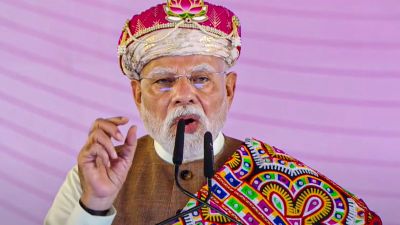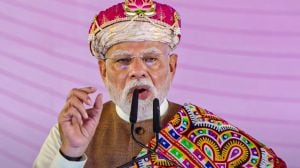Former US envoy Moynihan dead
Former US Ambassador to India and Senator Daniel Patrick Moynihan died on Wednesday at the Washington Hospital Center. He was 76. Moynihan d...

Former US Ambassador to India and Senator Daniel Patrick Moynihan died on Wednesday at the Washington Hospital Center. He was 76. Moynihan died as a result of complications stemming from a ruptured appendix, said his former aide Tony Bullock.
India, Moynihan once told journalist Inder Malhotra, was rather like an Uncle Tim in his family, who often turned up roaring drunk at the front door and demanded both food and tender loving care.
India was just the same, Moynihan added, a country that often got on US’ nerves but one that you couldn’t turn away. Sent to India as US Ambassador by President Nixon in late 1972, Moynihan knew he was being presented by Washington to Indira Gandhi as something of a making-up gift for its Bangladesh debacle.
Having infamously tilted against India and in favour of Pakistan on Bangladesh’s war of independence, after the war Nixon sought to make amends with New Delhi. Moynihan, a Democrat by conviction but a member of Nixon’s Domestic Council as well as part of his Cabinet in 1969, had publicly opposed Washington’s policy.
At the time Moynihan argued with Nixon, the inevitable was going to happen, that is Pakistan would have to give up its eastern flank, a new Bangladesh was going to be formed and the US ploy of scaring Mrs Gandhi by sending the Seventh Fleet into the Bay of Bengal would not work.
‘‘We are dumb. We are going to lose, and what are we going to get for it,’’ Moynihan said he told Nixon in an interview with India scholar and former US career diplomat Dennis Kux.
His dissension amidst the Washington power elite earned him the hearts and minds of New Delhi’s upper crust. And although he would soon get irritated at India’s continuing condescension and open anti-Americanism, he preferred to use wit and irony to target his Indian audience.
As he told Playboy, on hearing Mrs Gandhi had imposed Emergency — he was no longer ambassador — ‘‘When India ceased to be a democracy, our actual interest there just plummeted. I mean, what does it export but communicable diseases.’’
Shorn of the nationalist claptrap, a number of Indians saw Moynihan’s point but they could hardly say so in public.
Nevertheless, Moynihan never received the kind of public appreciation that had become synonymous with his predecessor John Kenneth Galbraith. Perhaps, it wasnt the historical moment. Perhaps the personalities of all the key personalities in that huge drama were far too angular.
Photos


- 01
- 02
- 03
- 04
- 05





























